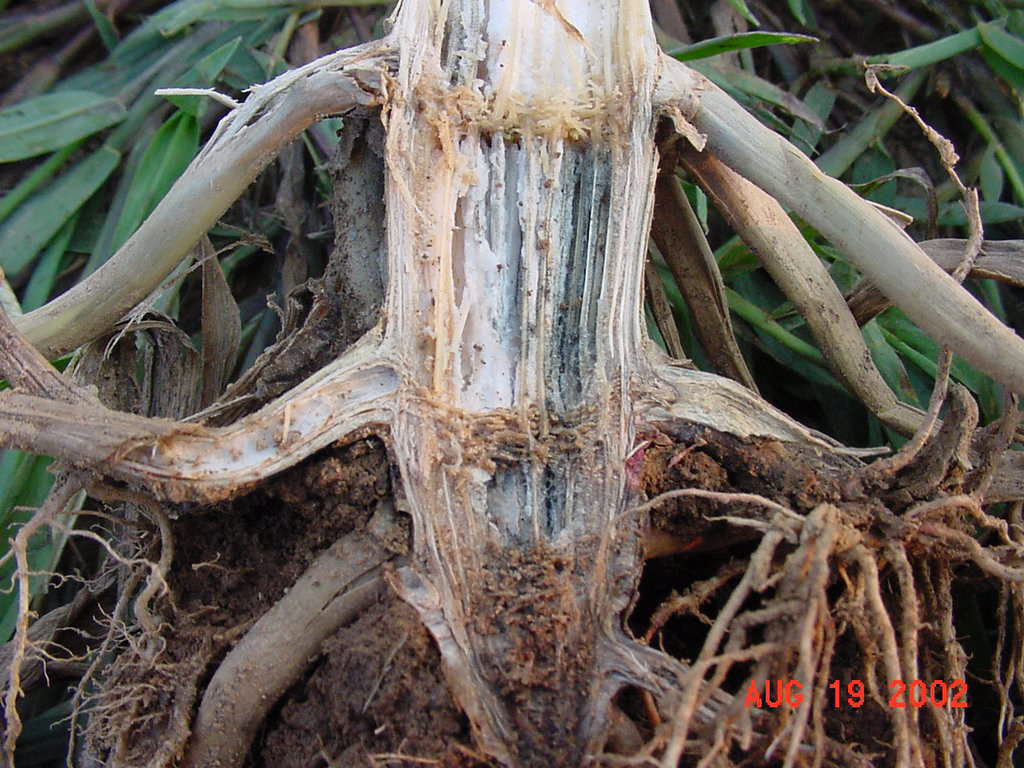Identification and Management for Charcoal Stalk Rot in Corn
August 14, 2023
Stalk rots in corn are a widespread problem that can occur with varying degrees of severity. One of these stalk rots that we may see is charcoal stalk rot. This fungus, Macrophomina phaseolina, is the same fungus that causes charcoal rot of soybean. There are different weather conditions that favor each stalk rot. Charcoal rot can be a problem during a hot dry season with very low soil moisture, especially during grain fill. The fungus enters the plant through the roots and lower stem where it may infect the stalk. Upon infection, the pith begins to disintegrate and break down. When splitting a stalk, tiny black spores can be seen within the pith which looks like charcoal dust, hence the name Charcoal rot (Figure 1).

When it comes to charcoal rot management, there are a few factors to consider. Since the fungus overwinters in crop residue, crop rotation has little to no effect since other crops like soybean are susceptible hosts. Selecting corn and soybean products with stress and disease tolerance can be helpful. Burying crop residue with tillage can help reduce the risk of infection. Scout for stalk rots when plants are a few weeks from physiological maturity. Sample by walking in a M or W pattern throughout the field and randomly check 10 to 20 stalks/20 acres for lack of integrity. Use the pinch or push test. The pinch test consists of pinching the stalk between the lowest two internodes to see if it can withstand the pressure, if the stalk collapses, rate it as a failure. To complete a push test, push the stalk 30 degrees from vertical (around 8 inches) and see how many spring back to upright and how many lodge. In cases where more than 10% of plants are lodging or the stalk is collapsing, consider harvesting at higher moisture and drying grain after harvest to avoid yield loss due to lodging.
Michael Mullins
Channel Agronomist
1110_282551
Disclaimer
Always read and follow pesticide label directions, insect resistance management requirements (where applicable), and grain marketing and all other stewardship practices.